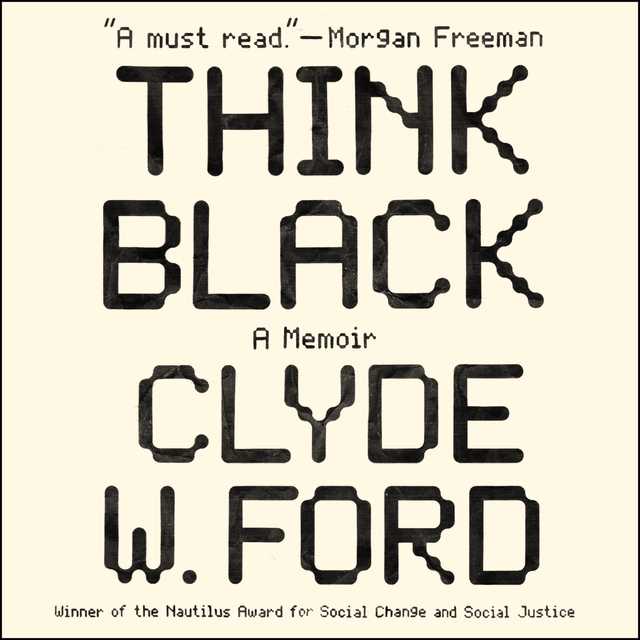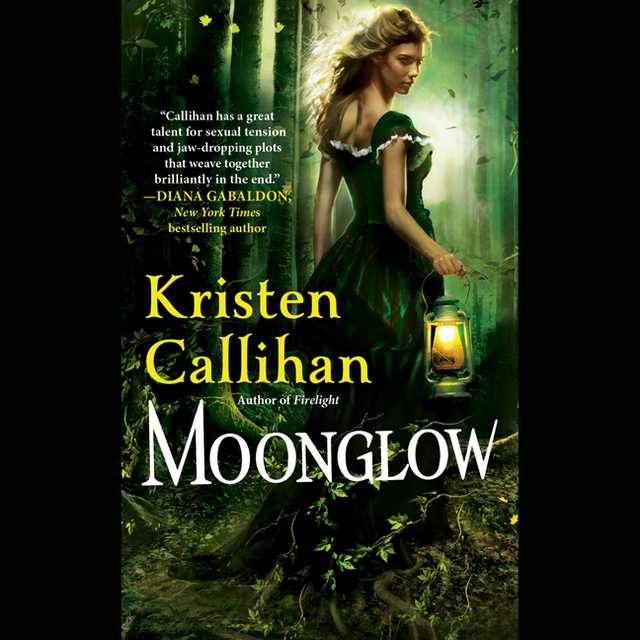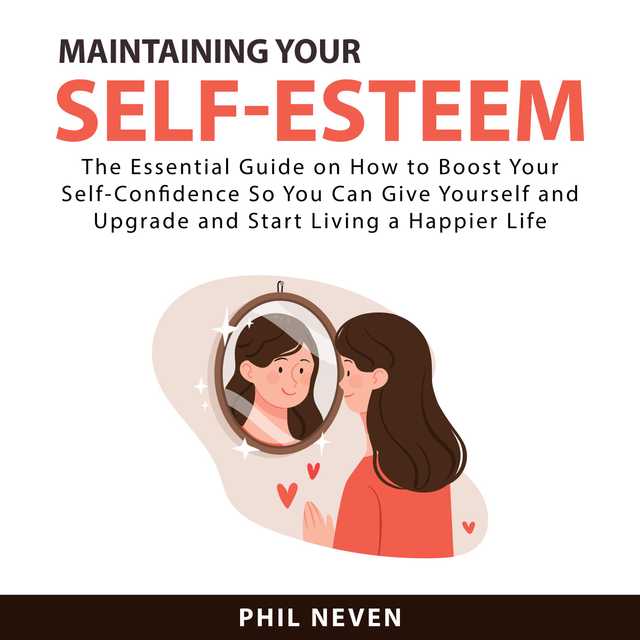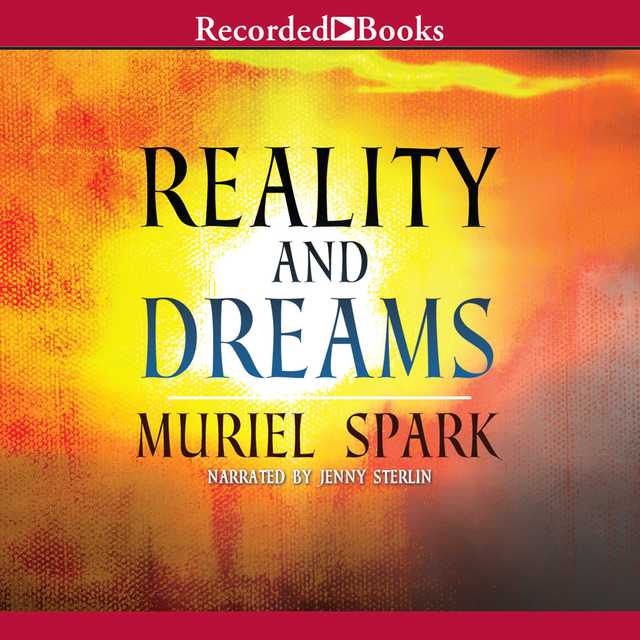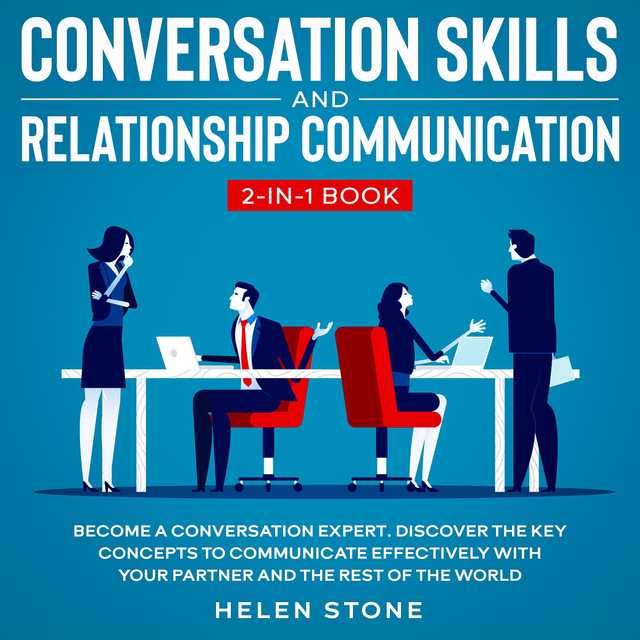Think Black Audiobook Summary
“Powerful memoir. . .Ford’s thought-provoking narrative tells the story of African-American pride and perseverance.”
-Publisher’s Weekly (Starred)
“A masterful storyteller, Ford interweaves his personal story with the backdrop of the social movements unfolding at that time, providing a revealing insider’s view of the tech industry. . . simultaneously informative and entertaining. . . A powerful, engrossing look at race and technology.”
-Kirkus Review (Starred)
In this thought-provoking and heartbreaking memoir, an award-winning writer tells the story of his father, John Stanley Ford, the first black software engineer at IBM, revealing how racism insidiously affected his father’s view of himself and their relationship.
In 1947, Thomas J. Watson set out to find the best and brightest minds for IBM. At City College he met young accounting student John Stanley Ford and hired him to become IBM’s first black software engineer. But not all of the company’s white employees refused to accept a black colleague and did everything in their power to humiliate, subvert, and undermine Ford.
Yet Ford would not quit. Viewing the job as the opportunity of a lifetime, he comported himself with dignity and professionalism, and relied on his community and his “street smarts” to succeed. He did not know that his hiring was meant to distract from IBM’s dubious business practices, including its involvement in the Holocaust, eugenics, and apartheid.
While Ford remained at IBM, it came at great emotional cost to himself and his family, especially his son Clyde. Overlooked for promotions he deserved, the embittered Ford began blaming his fate on his skin color and the notion that darker-skinned people like him were less intelligent and less capable–beliefs that painfully divided him and Clyde, who followed him to IBM two decades later.
From his first day of work–with his wide-lapelled suit, bright red turtleneck, and huge afro–Clyde made clear he was different. Only IBM hadn’t changed. As he, too, experienced the same institutional racism, Clyde began to better understand the subtle yet daring ways his father had fought back.
Other Top Audiobooks
Think Black Audiobook Narrator
Leon Nixon is the narrator of Think Black audiobook that was written by Clyde W. Ford
Clyde W. Ford was born in NYC. He’s the author of thirteen works of fiction and non-fiction. He’s also a psychotherapist, an accomplished mythologist, and a sought-after public speaker. In 2006, Ford received the Zora Neale Hurston/Richard Wright Award in African American fiction. He was named a “Literary Lion” by the King County Library System in 2006, 2007, 2008, and 2019. Clyde was voted “Best Writer of Bellingham, Washington” in 2006 and 2007 by readers of the Cascadia Weekly and he received the 2007 Bellingham, Washington Mayor’s Arts Award in Literature. Ford is currently a speaker for Humanities Washington, an affiliate of the NEH, where he presents a program entitled, “Let’s Talk About Race,” around the state. Clyde has participated in hundreds of media interviews and has appeared on the Oprah Winfrey Show, New Dimensions Radio, and National Public Radio. He lives in Bellingham, Washington where he writes aboard his 30-foot trawler, and cruises the waters of the Inside Passage.
About the Author(s) of Think Black
Clyde W. Ford is the author of Think Black
More From the Same
- Author : Clyde W. Ford
- Of Blood and Sweat
- Publisher : HarperAudio
- Abraham
- American Gods [TV Tie-In]
- Dead Ringer
- House of Sand and Fog
- Prey
Think Black Full Details
| Narrator | Leon Nixon |
| Length | 8 hours 49 minutes |
| Author | Clyde W. Ford |
| Category | |
| Publisher | HarperAudio |
| Release date | December 08, 2020 |
| ISBN | 9780063038165 |
Subjects
The publisher of the Think Black is HarperAudio. includes the following subjects: The BISAC Subject Code is Business & Economics, Workplace Culture
Additional info
The publisher of the Think Black is HarperAudio. The imprint is HarperAudio. It is supplied by HarperAudio. The ISBN-13 is 9780063038165.
Global Availability
This book is only available in the United States.
Goodreads Reviews
Sharon
April 02, 2022
Poignant memoir of a father and son who both worked at IBM. Ford's father was the first Black software engineer and Clyde joined IBM twenty years later. The book provides historical context as well as current context on race relations which move at a glacial pace. Ford also provides a front seat view to fast paced technology innovations.
Kimberly
December 13, 2020
One of the reasons I enjoy reading memoirs is because you learn so much about a person and their journey, their trials and tribulations, what made them who they are and the like. I’ve read just about every type of memoir from all walks of life and I was so excited when this little jewel entered my inbox from BookBub. This is a story I knew nothing about and I was quite intrigued to find out more.Before I delve into the jaw-dropping information I gleamed from Clyde Ford’s book, let me just say that I was absolutely in love with the IBM Selectric typewriters back in the day. I burned out quite a few in my time. Those electric typewriters were all the rave and it was so fun reading about the history of how those little machines came to be. But what was more interesting was finding out about the first black software engineer to ever work for the iconic IBM, John Stanley Ford. And you already know that Mr. Ford being the first also met with some rather challenging times while working for the pioneering giant. As much as I’d love for racism to up and disappear, unfortunately for John Stanley Ford, it was literally just beginning with all the shenanigans his colleagues pulled on him while employed at IBM. Because of his skin color, he had to work harder and better than his white counterparts and Mr. Ford was here for it. From giving him the smallest work space, to try and hook him up with white women in seedy hotels and pretend like he was supposed to be going to meet up with other IBM execs, were just a couple things that he had to endure. But the one thing IBM’s tricks could not do was take away his intelligence. John Stanley Ford was a genius when it came to programming computers and you can also give him thanks for the very cell phones and computer devices you use today, for it not for his wisdom of programming, we wouldn’t have the technology we take for granted today. Remember, IBM was before Apple and Microsoft. IBM was the leader in technology. Imagine watching your father as a young child writing computer programming and then teaching it to you so that you, too, could one day become a software engineer and work for the very company that threw all types of shade at you at every turn. Yes, Clyde Ford, the author of this book, became an engineer for IBM as his father once had. Trust and believe learning code and how to program it isn’t an easy feat. For young Clyde, how he managed to understand binary mathematics and different type of code writing, was mind boggling in and of itself. I was struggling to understand it as he demonstrated the different types of programming his father and he worked with. Those damn punch cards were enough to give me headaches from a reader’s standpoint, so I can’t begin to imagine how Clyde ever learned it. I tried using some of his examples to see if I could decipher the code and every time I thought I was right, it turns out there was one variable that ended up being different, but at least I tried to understand the concept behind the technology. What really blew me away was learning of IBMs involvement in the Holocaust. Yes, you read that right! The Holocaust. I gobbled up those chapters quickly because I couldn’t believe what I was reading. To know that IBM sent their computers to Germany and helped train Hitler’s staff to learn how to use them so that they could “track” the Jewish people was earth-shattering to me. I mean, I’ve loved IBM products for most of my life and to learn about this made me feel some type of way. In fact, just typing this out in my review makes my skin crawl. I’ve read many books and watched movies on the Holocaust and I always wondered how Hitler came up with those horrible ‘numbers’ that he’d brand on Jewish people. Well, wonder no more because he used IBM’s software and computers to help him do it. OMG, I literally fell off my chair as I read Clyde’s words. I so do not want to believe this is true, but I believe every word Clyde stated. And of course, he gives plenty of receipts. There are several references throughout the Kindle version wherein all you had to do was hit the highlighted number and it would take you to websites and documents that Clyde offers the reader for you to do your own research in which I most certainly availed myself. All I can say is, WOW!!!! For me, what I found most interesting is how many times Clyde went to IBM to ask for his employee records and his father’s records for his book and IBM refused to answer him. After learning of their involvement in not only the Holocaust, but in other sinister activities regarding race relations, I soon understood why they declined to speak with him. I can only imagine the backlash he’s received for having written a book this detailed. When I tell you it felt as though Clyde left nothing out, you better believe it! I was just mind-blown by this entire book. He goes into detail about his parents’ marriage and infidelities. He talks about his personal struggles with his father having to live up to shoes he couldn’t possibly fill. This memoir was very educational to say the least. Some other poignant sections I found intellectually stimulating was his detail on how technology impacted the elections and the seriousness of technology and being a programmer and what that means for humans. Artificial Intelligence is very real and extremely dangerous when put into the wrong hands and when he talked about Donald Trump’s 2016 campaign and how that impacted the country, a whole multitude of things truly opened up in my mind’s eye. Needless to say, I fell in love with this book. This, by far, was the best memoir I’ve read for 2020. I appreciated Clyde’s words and his hard work in researching material to bring forth truth and dignity to the reader. To read original post, please stop by https://www.thesexynerdrevue.com/2020...
Temika
September 03, 2019
I felt a personal connection to this book as I am also an engineer and my first job was at IBM. This is the story of the first black engineer, John Stanley Ford, who was hired by Watson Sr. himself. This memoir was written by and through the eyes of his son who also ended up working for IBM. This book touched on A LOT of things: misconception of diversity in the workplace, professional racism, eugenics, the "first" blacks, IBM and the Holocaust, IBM and Apartheid, and a history of technology that was supposedly for the better. I thoroughly enjoyed this book! I recommend this book to anyone who is working in the tech industry or retired from it. A lot of us go through IBM at one point of another. Or we work at corporations who have the same objectives and goals. Reading this affirmed my feelings of suspicion, naivety, and frustration while being black and employed.
Latoya
November 26, 2019
I could not read this book as quickly as I'd hoped. I kept stopping not only to underline, tab, and make notes, but to catch my breath. The way in which Dr. Ford weaves together America's history with race, his own familial history, and that of IBM's, it all required me to step back a few times to take in all the information. This is a great read, and Dr. Ford is a compelling storyteller. I feel as if this book hasn't received the marketing and attention it deserves.
Jonathan
January 10, 2021
Very interesting read.
Aqura (engineersreadtoo)
September 18, 2019
lyde Ford writes a memoir for his father, John Stanley Ford, the first Black software engineer at IBM, interweaving their experiences at IBM while also unveiling the role of technology itself as a tool to facilitate racial oppression worldwide.Clyde really just scratches the surface on the day to day life at IBM but from what is revealed, I can tell that it not much has changed. Large engineering corporations are still overwhelmingly white, male dominated. Blatant racism may have disappeared somewhat but the covert racism still exists, and on so many levels. I really appreciated how Clyde used the racist history of technology as a guide through his and his fathers experiences at IBM in the second half of the book. It is so important to understand the underlying roles technology plays in advancing racist policies and beliefs that often goes unnoticed
Allan
December 10, 2020
This is an interesting memoir of the author's interactions with IBM but even more a remembrance of his father's time with IBM. It also has meditations on larger social issues both general ones of the experience of blacks in American society and specifically the way the IBM corporation handled those issues and played a roll in various historical incidents and injustices. While neither brilliant or definitive in either its technological or social insights the book does touch on and make engaging various issues and relate this to an interesting set of personal stories.The main narrative proceeds on a double track considering on the one hand Clyde's father John Stanley Ford's career at IBM as the first black service engineer beginning with his recruitment by Thomas J. Watson Sr. himself. The narrative then jumps forward to Clyde Ford's first days working at IBM in the 1960s. The narrative then returns to the elder Ford and the narrative jumps back and forth. We go from Clyde as a boy hiding from a piano recital to Clyde as a twenty something at IBM debugging code.The narrative is broken up with considerations of broader issues. Some of these are technical to do with the computer as when Ford discusses the role of Eastern philosophy in Leibniz's formulation of binary arithmetic. More often it is social as when considering how employment prospects for blacks at IBM reflected legal and social trends in American society and the different ways the two Fords reacted to their situation. The book also discusses the role of IBM and its subsidiary and allied firms in the evils of the holocaust and South African apartheid. These digressions often reflect a few sources and discussions, but the contrast with the particularity of the Fords experiences at IBM give them a salience and immediacy which is engaging.The book's greatest strength is its engagement with the character of the two principles the father a somewhat staid but still sly, smart and talented individual with unrequited musical ambitions and the son a more radical contrarian steeped in more revolutionary thought and action who is willing to follow his dreams. The technical side of the computer comes up at various times, but often not in much details and the detail that does come up is often a bit different from the usual litany one might expect in a book about IBM. The computing machine Ford choses to focus on the most is the humble IBM 407 accounting machine, which many would not consider a computer, however Ford makes the case for it as the illustrative computer in his narrative for various reasons. The technical discussions can be a bit brief and elliptical, I am not sure how much sense they make to people who do not already have an idea of what Ford is talking about.I had no problems with the ebook, the text was legible and the footnote/endnote feature worked well.
Elena
April 06, 2022
Great insights into the reality of working while black in corporate America - specifically IBM in this case - told from the interesting perspective of the son of IBM's first black software engineer, and the son also went to work for IBM. Ford gives enough background on the history of IBM to put his father's and his experiences into proper context. Interesting adventure tales from Ford's youth as a developing radical thinker, and dodging perils on a trip to Africa. All this serves to keep the momentum of the story going. The conflict and lack of understanding between father and son give this memoir pathos. The generational differences are very recognizable and told with some compassion for the father in spite of the spiky relationship between them. I enjoyed nearly all of this book with the exception of one section, that seemed very long to me, that delved in too much technical detail for me into the different computer languages that developed and that his father had to learn, and made sure he learned. It's important in the younger Ford's development, important to the father's story as well, but told in what was to me mind-numbing detail. It's possible to skim through that section quickly to get back to the more enjoyable, readable parts of the book. I would thank Clyde Ford for memorializing his father's life and work in this fashion, and including so much of his own as well.
Chris
January 26, 2020
I picked this up on a whim from the new biographies shelf at the library. I was fascinated by the computer history details (some components of which I am intimately familiar with from my almost 50 years of computer experience). The IBM mystique was a huge part of my experience and details about the company were also interesting (for example I never knew about the holocaust and apartheid connections). And the details of the lives of two black men were eye opening for me. I do not argue my white privilege and at the ripe old age of 65 I am starting to finally feel the need to learn more. I thank the author for that. I was going to take away a star for the rather disjointed organization of the book. Drove me a bit nuts at the beginning but eventually I felt it worked. Oh and I read the authors full bio which is a story in itself.
Avrora
May 08, 2021
Excelent read! I picked it because I was interested in a memoir about one's father and I got so much more! This is a glimpse in the life of three generations of African-American struggle to join the middle class and achieve the American Dream with sacrifices, pitfalls, success and disilusionment. In addition this is a very well researched view of the racist past of the IBM corporation. I reccomend it highly!
Brandon
August 19, 2022
Truly one of the best memoirs I have read in recent years. Poetic prose and historical connections are made that give me more topics to explore. On another level it made me think back to my own relationship with my father and wonder why my hero moved the way he moved and did the things he did to keep us safe in a world that still targets us. I am definitely going to read more of Clyde W. Ford's works.
Betsey
September 13, 2021
Really a 4.5 but I rounded up...The WSBA winner for creative nonfiction, Think Black is about a father, the first Black systems engineer at IBM and a son who also went to work for IBM. And, it is a revealing book about how this American company used its new technology to help Nazi Germany round up Jewish people and later, used its technology to assist the South African government categorize its citizens by race, in order to enforce apartheid.
Most Popular Audiobooks
Frequently asked questions
Listening to audiobooks not only easy, it is also very convenient. You can listen to audiobooks on almost every device. From your laptop to your smart phone or even a smart speaker like Apple HomePod or even Alexa. Here’s how you can get started listening to audiobooks.
- 1. Download your favorite audiobook app such as Speechify.
- 2. Sign up for an account.
- 3. Browse the library for the best audiobooks and select the first one for free
- 4. Download the audiobook file to your device
- 5. Open the Speechify audiobook app and select the audiobook you want to listen to.
- 6. Adjust the playback speed and other settings to your preference.
- 7. Press play and enjoy!
While you can listen to the bestsellers on almost any device, and preferences may vary, generally smart phones are offer the most convenience factor. You could be working out, grocery shopping, or even watching your dog in the dog park on a Saturday morning.
However, most audiobook apps work across multiple devices so you can pick up that riveting new Stephen King book you started at the dog park, back on your laptop when you get back home.
Speechify is one of the best apps for audiobooks. The pricing structure is the most competitive in the market and the app is easy to use. It features the best sellers and award winning authors. Listen to your favorite books or discover new ones and listen to real voice actors read to you. Getting started is easy, the first book is free.
Research showcasing the brain health benefits of reading on a regular basis is wide-ranging and undeniable. However, research comparing the benefits of reading vs listening is much more sparse. According to professor of psychology and author Dr. Kristen Willeumier, though, there is good reason to believe that the reading experience provided by audiobooks offers many of the same brain benefits as reading a physical book.
Audiobooks are recordings of books that are read aloud by a professional voice actor. The recordings are typically available for purchase and download in digital formats such as MP3, WMA, or AAC. They can also be streamed from online services like Speechify, Audible, AppleBooks, or Spotify.
You simply download the app onto your smart phone, create your account, and in Speechify, you can choose your first book, from our vast library of best-sellers and classics, to read for free.
Audiobooks, like real books can add up over time. Here’s where you can listen to audiobooks for free. Speechify let’s you read your first best seller for free. Apart from that, we have a vast selection of free audiobooks that you can enjoy. Get the same rich experience no matter if the book was free or not.
It depends. Yes, there are free audiobooks and paid audiobooks. Speechify offers a blend of both!
It varies. The easiest way depends on a few things. The app and service you use, which device, and platform. Speechify is the easiest way to listen to audiobooks. Downloading the app is quick. It is not a large app and does not eat up space on your iPhone or Android device.
Listening to audiobooks on your smart phone, with Speechify, is the easiest way to listen to audiobooks.

